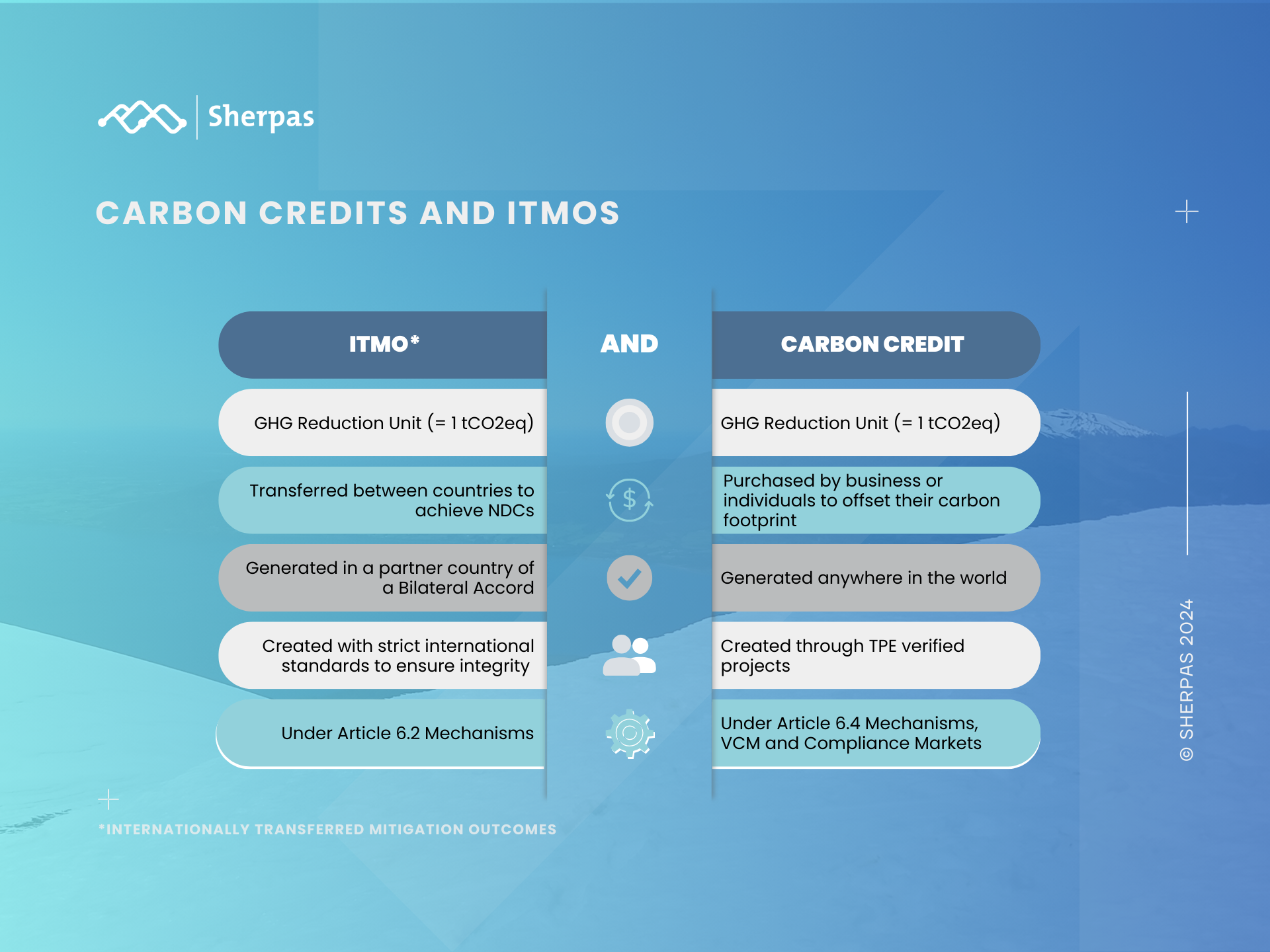Carbon Credits and ITMOs: Understanding Their Roles
In the carbon markets and climate policy realm, understanding the nuances between carbon credits and Internationally Transferred Mitigation Outcomes (ITMOs) is crucial in emission reduction projects.
A Carbon credit is a certificate that represents the reduction or removal of one ton of CO2e emission, primarily used by businesses and individuals to offset their carbon footprint. These credits are generated through verified projects such as reforestation or renewable energy, and they can be traded in voluntary or compliance markets to help entities achieve carbon neutrality or regulatory compliance.
Even though an ITMO represents as well 1 ton of CO2eq emission reduction, it is transferred internationally between countries under the framework of the Paris Agreement, specifically Article 6.2. ITMOs facilitate international cooperation by allowing countries to meet their Nationally Determined Contributions (NDCs) more cost-effectively.
Both mechanisms require rigorous verification to ensure environmental integrity and to prevent double counting.
Together, carbon credits and ITMOs represent complementary approaches under Article 6 of the Paris Agreement in the global strategy to combat climate change.


